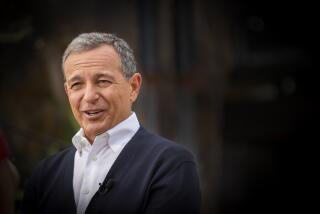People to Watch in 2000
- Share via
Who will make big news in the business world this year? Who will emerge from relative obscurity to become a major player? To start the new year, Times business reporters selected people from their beats who they believe will be among those to watch in 2000--in Southern California, across the country and around the world. Some are well known, having made big news in previous years. Others are not exactly household names but nevertheless are likely to make a major impact in their fields.
Of course, there’s no way to predict just what’s going to happen in the next 12 months. Nor can any such list be complete--there’s always the come-from-nowhere phenom who’ll surprise everyone. But it’s a good bet that if you follow the fortunes of these 22, you’ll see the top business stories of 2000 unfold.
Philip Marineau of Levi Strauss
Levi Strauss & Co. is betting that Philip Marineau, a marketing executive who honed his skills on such brands as Pepsi and Gatorade, will spark a rebound in the San Francisco-based company’s stalled denim products business.
Levi Chairman Robert Haas, who in September turned the chief executive’s title over to Marineau, 52, has described the former president and CEO of PepsiCo Inc.’s North America unit as “a world-class brand builder.”
During two years as president of Pepsi’s domestic beverage business, Marineau showed a clear understanding of the importance of branding in the competitive soft drink industry. Before joining PepsiCo, Marineau was chief operating officer at Dean Foods Co. He also spent 23 years at Quaker Oats, where he helped turn Gatorade into the world’s best-selling sports drink.
Marineau’s wealth of beverage industry marketing experience, however, is countered by an acknowledged lack of experience in the apparel industry. Marineau argues that similarities exist between the beverage and apparel industries--but that he obviously faces a steep learning curve.
Marineau confronts a stiff challenge at the privately held apparel company, which has closed nearly two dozen plants and cut thousands of jobs in recent years in an ongoing attempt to put production in line with falling demand. The company’s share of the competitive denim market fell from 15% to 14% this summer as consumers opted for jeans from such competitors as Tommy Hilfiger Corp. and J.C. Penney.
More to Read
Inside the business of entertainment
The Wide Shot brings you news, analysis and insights on everything from streaming wars to production — and what it all means for the future.
You may occasionally receive promotional content from the Los Angeles Times.










